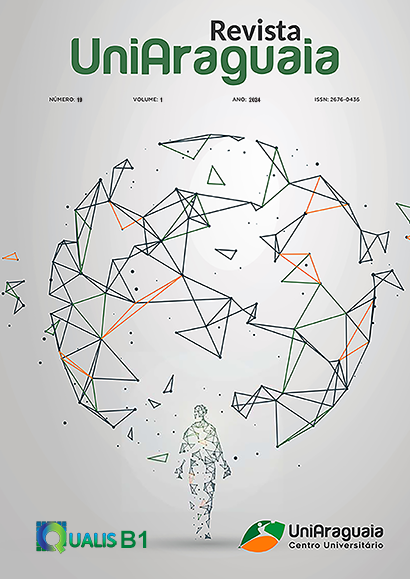EVALUATION IN FUNDAMENTAL EDUCATION: (IM)POSSIBILITY OF CRITICAL KNOWLEDGE
Abstract
In this work, we show that evaluation is not just about obtaining integrated information to compose a grading system that gives it meaning and meaning, as it is a process that aims to indicate the evolution of subjects in the work system. Thus, in the political-pedagogical context of teaching-learning, we seek to identify some aspects of the “effectiveness” of the political-pedagogical and financial proposal of SME-GO; the teacher-pedagogue relationship, coordination and the importance of cognitive apprehension of content by students.
Downloads
Published
Issue
Section
License

This work is licensed under a Creative Commons Attribution 4.0 International License.
The copyright of the published articles will be transferred to the Uniaaraguaia Magazine, allowing its subsequent reproduction as transcription and with due citation of source. In the event of acceptance and before the publication of the article, the plaintiff (s) shall write a statement formally transferring copyright to the magazine.
The author may also print and distribute copies of his article, provided that he mentions that the rights belong to the Uniaaraguaia Magazine.
Author rights include the right to reproduce in full or partly by any means, distribute this article, including figures and photographs.
By submitting originals to the Uniaaraguaia magazine, the author or authors express agreement with the following terms:
a) Authors maintain copyright and grant Uniaraguaia magazine the right of first publication, with the work simultaneously licensed under the Creative Commons Attribution license that allows the sharing of work with recognition of the authorship and initial publication in this magazine.
b) Authors are authorized to assume additional contracts separately, for non-expiration distribution of the work version published in this magazine (eg publish in institutional repository or as book chapter), with recognition of authorship and initial publication in this journal.
c) Authors are allowed and are encouraged to publish and distribute their work online (eg in institutional repositories or on their personal page) to any point before or during the editorial process, as this can generate productive changes as well as increase the impact and citation of published work.

